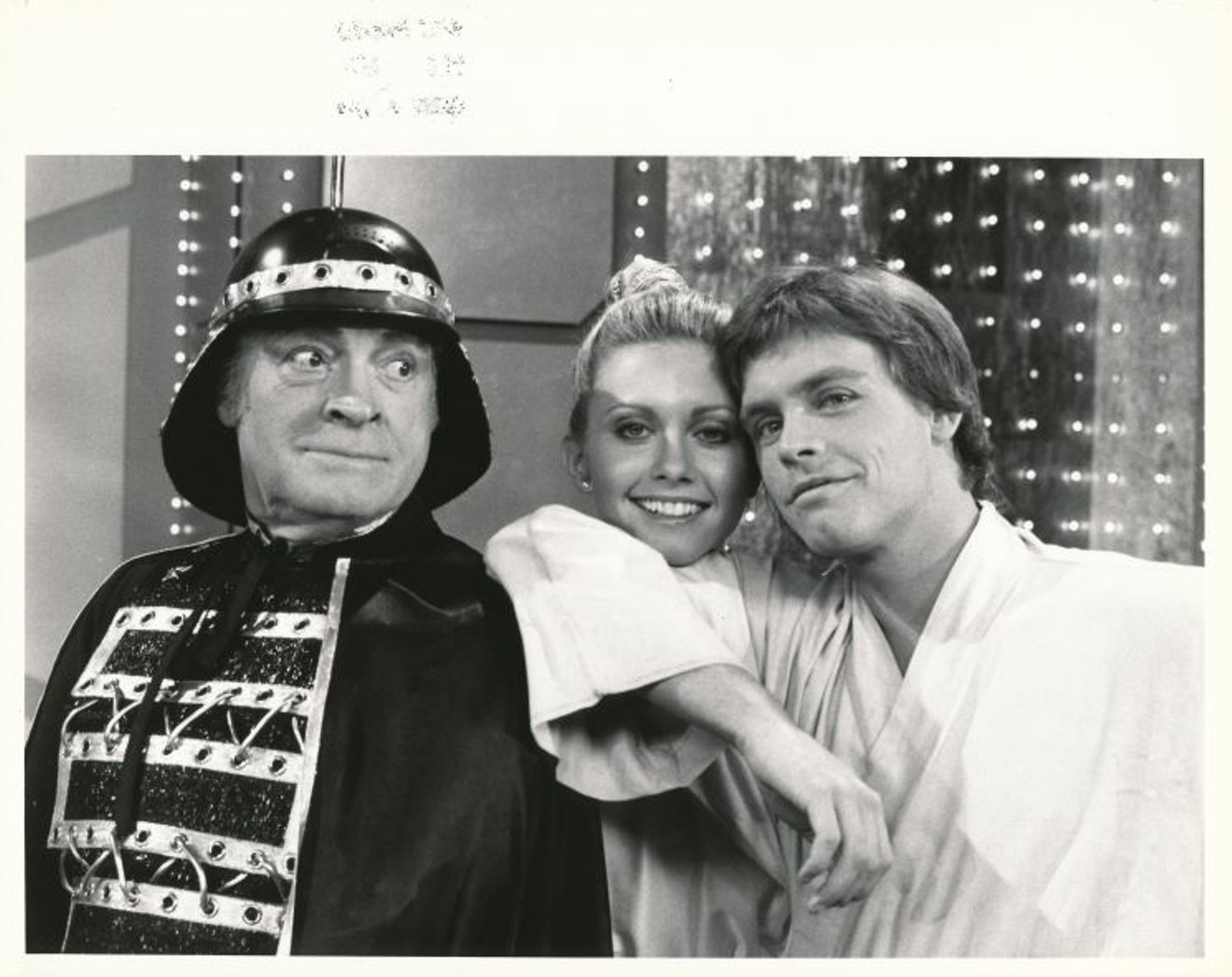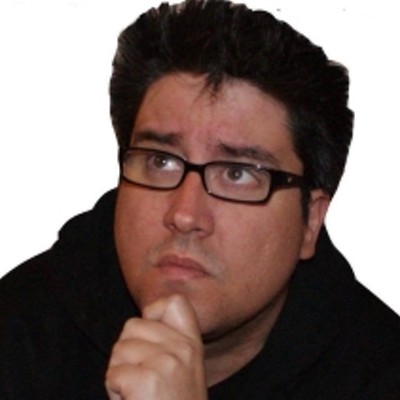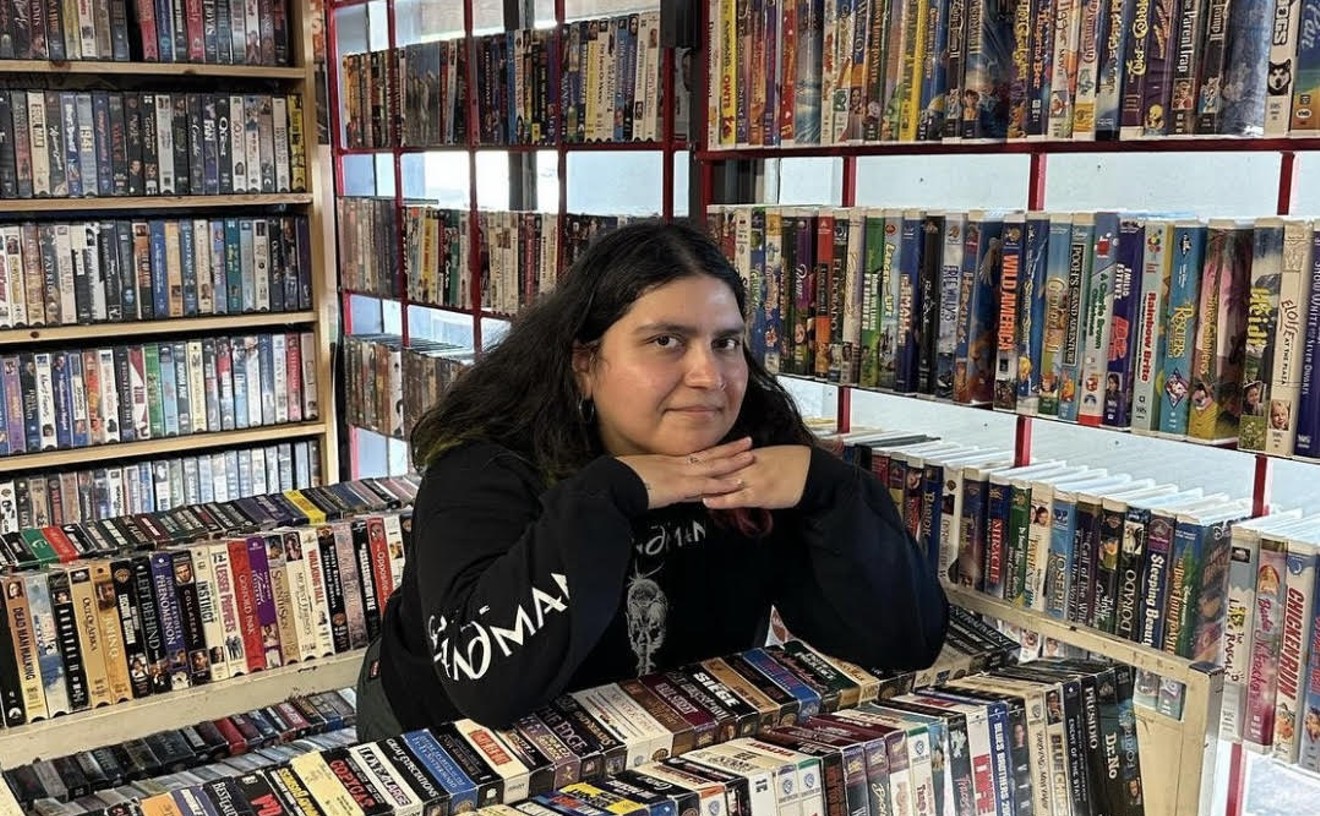One of the few, original Star Wars properties to air exclusively on television landed on CBS during the holidays in 1978 between the surprise blockbuster release of the first Star Wars earlier that summer and The Empire Strikes Back in 1980. Unlike its source material, it aired once and only once on television, and if you've seen it, you know why.
The Star Wars Holiday Special attempted to satisfy the fandom built by George Lucas' first Star Wars film by combining the Star Wars universe with the sensibilities of a 1970s holiday variety show. To say that the two did not mesh well in the annals of time would not begin to describe the mess that CBS hurled into the ether of pop culture on the evening of Nov. 17, 1978.
It's like watching Han Solo slice open that Tauntaun at the beginning of Empire to keep himsel and Luke Skywalker warm, but instead of intestines falling out, the wound sprayed him in the face with confetti and the Electric Light Orchestra danced out behind him singing "Sweet Talkin' Woman" for no reason.
"I think it was bad at the time, but it wasn't as jarring back in the day," Coon says. "This is how they marketed stuff. Anything that had a brand would get a TV show. They had football players singing and dancing, which is unthinkable today. No one foresaw home video or things living on the internet forever."
Coon, who became a producer and filmmaker on another sleeper hit with Napoleon Dynamite in 2004, tackles the story of the infamous Star Wars Holiday Special in a new documentary called A Disturbance in the Force: How The Star Wars Holiday Special Happened. It screened at the Dallas International Film Festival.
"This seems like a topic where people have made a documentary about everything so somebody had to make a deep dive on this," Coon says. "I'm surprised the answer was 'No.'"
The film offers interviews with people who worked on the special, including writer Bruce Vilanch and director Steve Binder, as well as fans who watched the special on television such as director Kevin Smith, musician "Weird Al" Yankovic and actor and comedian Seth Green. The doc premiered at the South by Southwest Film Festival last year and is touring the film festival circuit, with plans to do a wider distribution release to theaters in time for Life Day aka Nov. 17.
The Star Wars Holiday Special has been one of those mysterious pieces of pop culture canon that gets lambasted because it's being seen outside of its time, like opening up a time capsule 200 years from now and laughing at how people used something called an iPhone. Coon said he got involved when his co-director Steve Kozak wanted to make a movie about the holiday special because he knew a lot of the people who worked on it and other '70s variety specials in the industry who could tell its story in the proper context.
"His dad [Elliott Kozak] was Bob Hope's producer, so he knew all the people who worked on the special," Coon says of Steve Kozak. "It made the film better with the two of us working on it together."

The documentary A Disturbance in the Force includes interviews with celebrity Star Wars fans (left to right) "Weird Al" Yankovic; actor and Robot Chicken creator Seth Green; and comedy writer Bruce Vilanch, who worked on The Star Wars Holiday Special.
Courtesy of Dallas International Film Festival/Jeremy Coon Productions
The Star Wars Holiday Special takes place in its original universe, with appearances by principal stars Harrison Ford, Carrie Fisher and Mark Hamill, but it also tries to cram in celebrity appearances with people who don't really fit in Star Wars: comedian Harvey Korman, actor Art Carney and actress Bea Arthur as the proprietor of the Tatooine cantina. Then again, if you have to pick a Golden Girl to run the most dangerous bar in the universe, Dorothy is your best bet.
"When they did these variety specials, it was a week of their time at most," Coon says. "They were just cranking these out. The same cameramen, the same crew. Some of the people we talked to, they vaguely remember this because it was just another show at the time."
The other fuel running the special's production was the concern that it would take another three years before the fans could see a Star Wars sequel. The holiday special was one part of a whole new industry and production of movie marketing and merchandising, so Lucas didn't really have as close an eye on its making as fans might imagine.
"He basically sent people off on this journey and hoped it would help his bottom line," Coon says. "In addition to Empire, he's also making American Graffiti 2. This was not on top of his list as a concern."
Even if it's widely seen as a low point in the Star Wars franchise, the Holiday Special is still recognized by its new owner, The Walt Disney Company, which bought Lucasfilm in 2012 for more than $4 billion. The company's theme parks celebrate Life Day every Nov. 17, the fictional holiday celebrated by the Wookies in the TV special, with special fan gatherings and gift shop merchandise. There are references to the special in much more critically applauded Star Wars stories like the Disney+ series The Mandalorian and games like Star Wars: The Old Republic and the Star Wars table in Zen Pinball 2.
Coon also says making the film changed his views on how the special fits into Lucas' original vision for Star Wars. For years, rumors have persisted that Lucas tried to suppress the holiday special and gives very short answers when fans or interviewers ask him about the subject. Coon realizes the challenges and problems of making such a thing work, and says it's a heavy load for any filmmaker to bear. He also says he hopes he'll be able to sit down with Lucas and talk about the special for the final cut of his film, even if it's "kind of like a Hail Mary".
"The process of making this film made me more sympathetic to his situation than what it was like and why he reacts the way he does," Coon says of Lucas. "It was a small footnote of what he was working on and yet it's become a thorn in his side, because people want to ask him about it, and the more he tries to hide it, the more it's apparent that it does bother him."
Something as infamous as The Star Wars Holiday Special also might not sound worthy of film preservation to most film buffs, given the rest of the franchise's influence on filmmaking and storytelling, but Coon says the Holiday Special and other media like it help provide a complete picture of the time in which it existed and how it contributes to our cultural landscape.
"I find like found footage and stuff fascinating," Coon says. "So little of it is available or readily seen. Even going back to the silent film era, we lost 80% of the films made in the 1920s because the film caught fire or it wasn't kept up. I find that aspect of finding something that might be lost and finding the story behind it very fascinating."












